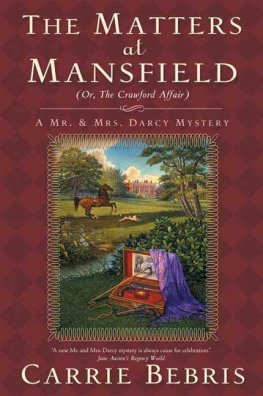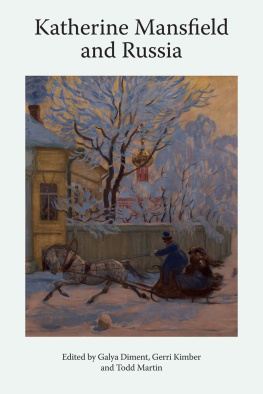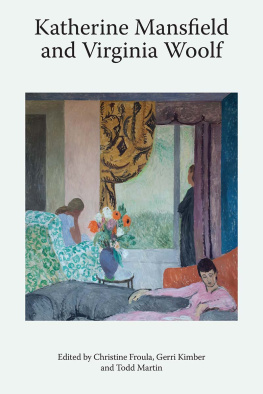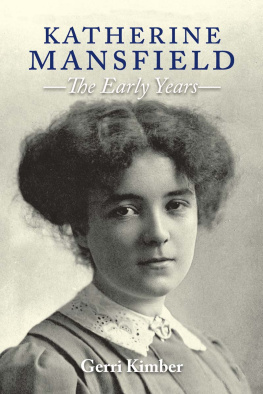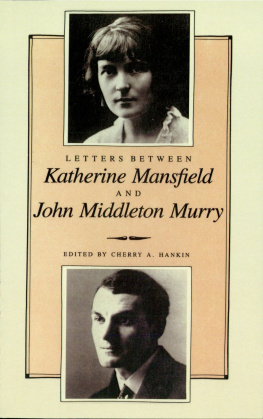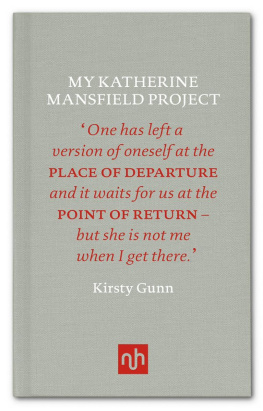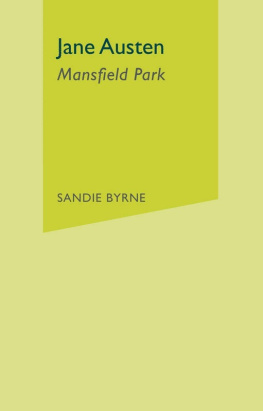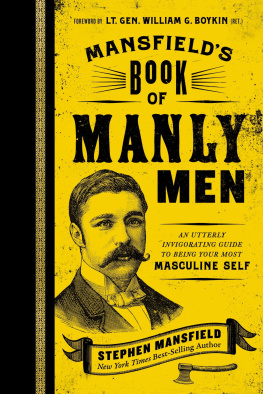Katherine Mansfield - Marriage à la Mode
Here you can read online Katherine Mansfield - Marriage à la Mode full text of the book (entire story) in english for free. Download pdf and epub, get meaning, cover and reviews about this ebook. genre: Romance novel. Description of the work, (preface) as well as reviews are available. Best literature library LitArk.com created for fans of good reading and offers a wide selection of genres:
Romance novel
Science fiction
Adventure
Detective
Science
History
Home and family
Prose
Art
Politics
Computer
Non-fiction
Religion
Business
Children
Humor
Choose a favorite category and find really read worthwhile books. Enjoy immersion in the world of imagination, feel the emotions of the characters or learn something new for yourself, make an fascinating discovery.

- Book:Marriage à la Mode
- Author:
- Genre:
- Rating:3 / 5
- Favourites:Add to favourites
- Your mark:
- 60
- 1
- 2
- 3
- 4
- 5
Marriage à la Mode: summary, description and annotation
We offer to read an annotation, description, summary or preface (depends on what the author of the book "Marriage à la Mode" wrote himself). If you haven't found the necessary information about the book — write in the comments, we will try to find it.
Marriage à la Mode — read online for free the complete book (whole text) full work
Below is the text of the book, divided by pages. System saving the place of the last page read, allows you to conveniently read the book "Marriage à la Mode" online for free, without having to search again every time where you left off. Put a bookmark, and you can go to the page where you finished reading at any time.
Font size:
Interval:
Bookmark:
Katherine Mansfield
Marriage la Mode
ON his way to the station William remembered with a fresh pang of disappointment that he was taking nothing down to the kiddies. Poor little chaps! It was hard lines on them. Their first words always were as they ran to greet him, "What have you got for me, daddy?" and he had nothing. He would have to buy them some sweets at the station. But that was what he had done for the past four Saturdays; their faces had fallen last time when they saw the same old boxes produced again.
And Paddy had said, "I had red ribbing on minebee-fore!"
And Johnny had said, "It's always pink on mine. I hate pink."
But what was William to do? The affair wasn't so easily settled. In the old days, of course, he would have taken a taxi off to a decent toyshop and chosen them something in five minutes. But nowadays they had Russian toys, French toys, Serbian toys toys from God knows where. It was over a year since Isabel had scrapped the old donkeys and engines and so on because they were so "dreadfully sentimental" and "so appallingly bad for the babies' sense of form."
"It's so important," the new Isabel had explained, "that they should like the right things from the very beginning. It saves so much time later on. Really, if the poor pets have to spend their infant years staring at these horrors, one can imagine them growing up and asking to be taken to the Royal Academy."
And she spoke as though a visit to the Royal Academy was certain immediate death to any one. .
"Well, I don't know," said William slowly. "When I was their age I used to go to bed hugging an old towel with a knot in it."
The new Isabel looked at him, her eyes narrowed, her lips apart.
"DearWilliam! I'm sure you did!" She laughed in the new way.
Sweets it would have to be, however, thought William gloomily, fishing in his pocket for change for the taxi-man. And he saw the kiddies handing the boxes round they were awfully generous little chaps while Isabel's precious friends didn't hesitate to help themselves. .
What about fruit? William hovered before a stall just inside the station. What about a melon each? Would they have to share that, too? Or a pineapple, for Pad, and a melon for Johnny? Isabel's friends could hardly go sneaking up to the nursery at the children's meal-times. All the same, as he bought the melon William had a horriblevision of one of Isabel's young poets lapping up a slice, for some reason, behind the nursery door.
With his two very awkward parcels he strode off to his train. The platform was crowded, the train was in. Doors banged open and shut. There came such a loud hissing from the engine that people looked dazed as they scurried to and fro. William made straight for a first-class smoker, stowed away his suit-case and parcels, and taking a huge wad of papers out of his inner pocket, he flung down in the corner and began to read.
"Our client moreover is positive. . We are inclined to reconsider. . in the event of" Ah, that was better. William pressed back his flattened hair and stretched his legs across the carriage floor. The familiar dull gnawing in his breast quietened down. "With regard to our decision" He took out a blue pencil and scored a paragraph slowly.
Two men came in, stepped across him, and made for the farther corner. A young fellow swung his golf clubs into the rack and sat down opposite. The train gave a gentle lurch, they were off. William glanced up and saw the hot, bright station slipping away. A red-faced girl raced along by the carriages, there was something strained and almost desperate in the way she waved and called. "Hysterical!" thought William dully. Then a greasy, black-faced workman at the end of the platform grinned at thepassing train. And William thought, "A filthy life!" and went back to his papers.
When he looked up again there were fields, and beasts standing for shelter under the dark trees. A wide river, with naked children splashing in the shallows, glided into sight and was gone again. The sky shone pale, and one bird drifted high like a dark fleck in a jewel.
"We have examined our client's correspondence files. . " The last sentence he had read echoed in his mind. "We have examined. ." William hung on to that sentence, but it was no good; it snapped in the middle, and the fields, the sky, the sailing bird, the water, all said, "Isabel." The same thing happened every Saturday afternoon. When he was on his way to meet Isabel there began those countless imaginary meetings. She was at the station, standing just a little apart from everybody else; she was sitting in the open taxi outside; she was at the garden gate; walking across the parched grass; at the door, or just inside the hall.
And her clear, light voice said, "It's William," or "Hillo, William!" or "So William has come!" He touched her cool hand, her cool cheek.
The exquisite freshness of Isabel! When he had been a little boy, it was his delight to run into the garden after a shower of rain and shake the rose-bush over him. Isabel was that rose-bush, petal-soft, sparkling and cool. And he was still that little boy. But there was no running into the garden now, no laughing and shaking. The dull, persistent gnawing in his breast started again. He drew up his legs, tossed the papers aside, and shut his eyes.
"What is it, Isabel? What is it?" he said tenderly. They were in their bedroom in the new house. Isabel sat on a painted stool before the dressing-table that was strewn with little black and green boxes.
"What is what, William?" And she bent forward, and her fine light hair fell over her cheeks.
"Ah, you know!" He stood in the middle of the room and he felt a stranger. At that Isabel wheeled round quickly and faced him.
"Oh, William!" she cried imploringly, and she held up the hair-brush: "Please! Please don't be so dreadfully stuffy and tragic. You're always saying or looking or hinting that I've changed. Just because I've got to know really congenial people, and go about more, and am frightfully keen on on everything, you behave as though I'd" Isabel tossed back her hair and laughed"killed our love or something. It's so awfully absurd" she bit her lip"and it's so maddening, William. Even this new house and the servants you grudge me."
"Isabel!"
"Yes, yes, it's true in a way," said Isabel quickly. "You think they are another bad sign. Oh, I know you do. I feel it," she said softly, "every time you come up the stairs. But we couldn't havegone on living in that other poky little hole, William. Be practical, at least! Why, there wasn't enough room for the babies even."
No, it was true. Every morning when he came back from chambers it was to find the babies with Isabel in the back drawing-room. They were having rides on the leopard skin thrown over the sofa back, or they were playing shops with Isabel's desk for a counter, or Pad was sitting on the hearthrug rowing away for dear life with a little brass fire shovel, while Johnny shot at pirates with the tongs. Every evening they each had a pick-a-back up the narrow stairs to their fat old Nanny.
Yes, he supposed it was a poky little house. A little white house with blue curtains and a window-box of petunias. William met their friends at the door with "Seen our petunias? Pretty terrific for London, don't you think?"
But the imbecile thing, the absolutely extraordinary thing was that he hadn't the slightest idea the Isabel wasn't as happy as he. God, what blindness! He hadn't the remotest notion in those days that she really hated the inconvenient little house, that she thought the fat Nanny was ruining the babies, that she was desperately lonely, pining for new people and new music and pictures and so on. If they hadn't gone to that studio party at Moira Morrison's if Moira Morrison hadn't said as they were leaving, "I'm going to rescue your wife, selfish man. She's like an exquisite little Titania" if Isabelhadn't gone with Moira to Paris if if. .
Font size:
Interval:
Bookmark:
Similar books «Marriage à la Mode»
Look at similar books to Marriage à la Mode. We have selected literature similar in name and meaning in the hope of providing readers with more options to find new, interesting, not yet read works.
Discussion, reviews of the book Marriage à la Mode and just readers' own opinions. Leave your comments, write what you think about the work, its meaning or the main characters. Specify what exactly you liked and what you didn't like, and why you think so.

